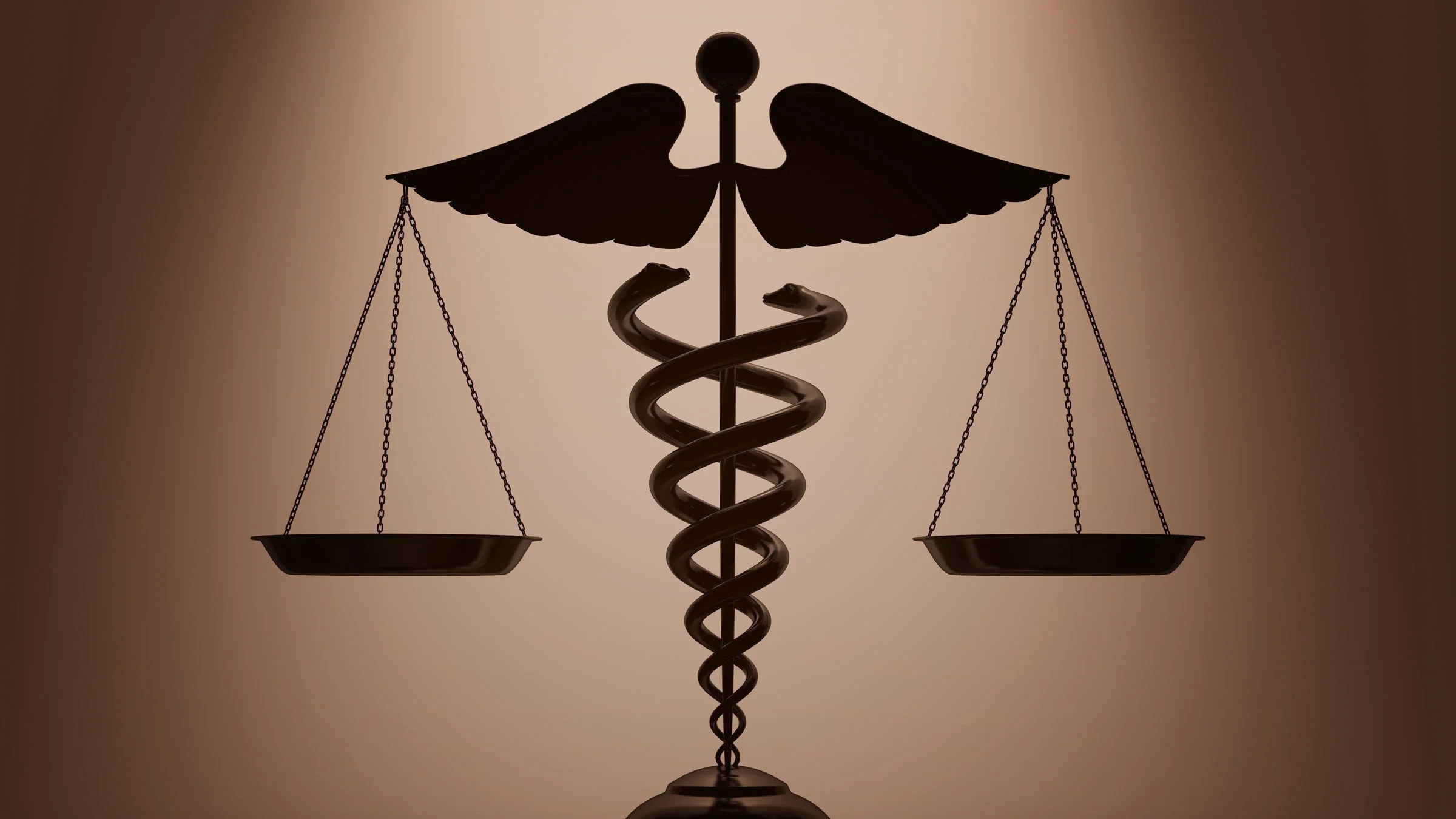Key takeaways:
This year, Dobbs v. Jackson Women’s Health Organization reversed an earlier Supreme Court decision and gave states the power to create laws to regulate or prohibit abortions.
If the decision of Braidwood Management v. Becerra is not appealed or reversed, employers may be able to pick and choose which Affordable Care Act (ACA) preventive services they will provide coverage for based on religious exemptions.
In Biden v. Missouri, the Supreme Court found that it is within the Department of Health and Human Services’s (HHS) authority to require healthcare workers to be vaccinated against COVID.
The Texas Medical Association v. United States Department of Health and Human Services case illustrates that, while it has been good for consumers, the No Surprises Act has been quite troublesome for insurance companies and healthcare providers.
2022 has certainly been a big year for healthcare. In this article, we’ll review four of the most important healthcare cases decided this year, which concerned a state’s right to legislate abortions, employers’ rights to object to Affordable Care Act (ACA) requirements, whether the federal government can mandate vaccines, and the effects of the No Surprises Act.
1. Dobbs v. Jackson Women’s Health Organization
The case
In 2018, Mississippi passed House Bill 1510, also referred to as the “Gestational Age Act.” The law prevents all abortions performed after the 15-week mark, which Mississippi has defined as the point of viability of a fetus. Any doctor or medical professional who performs an abortion after the 15-week mark is subject to mandatory suspension (or even revocation) of their medical license.
Jackson Women’s Health Organization, the only abortion clinic in the state, challenged the law on the grounds that the legislators’ selection of the 15-week mark for viability was arbitrary and that the law conflicted with federal precedent on the subject.
The decision
This case went all the way up to the Supreme Court, which found that:
There is no constitutional right to privacy.
There is no implicit constitutional right to an abortion.
The justices overturned previous rulings in Roe v. Wade and Planned Parenthood v. Casey, arguing that previous courts overstepped when deciding those cases, since the decisions lacked a constitutional basis and circumvented legislative authority on the subject.
Why the case matters
A preliminary draft of the Supreme Court opinion was leaked about a month before the final opinion was issued. While authorities never identified the source of the leak, many held out hope that the information was inaccurate and that the final decision would differ from the draft.
Ultimately, as a result of the ruling, the right to an abortion was made a state issue. That means that states are now within their rights to determine if abortions can be offered and at how many weeks, as well as what the legal repercussions are if these rules are violated. Many would argue that this overturns 50 years of legal precedent established by the Roe decision.
2. Braidwood Management v. Becerra
The case
Braidwood Management v. Becerra, also known as Kelley v. Becerra, is a Texas federal court case that litigated the ACA provision that requires individual and group health plans to cover “preventive services.” During the ACA’s creation, legislators emphasized the importance of this type of coverage, as many argued this would reduce overall healthcare costs in the long run. The plaintiffs, a group of Texas individuals and business owners, argued that requiring plans to cover these services could infringe on religious freedom. One example that they pointed to was their objection to paying for employees’ access to PrEP, a preventative treatment for HIV and AIDS.
The decision
On September 7, 2022, a Texas federal court judge found the ACA requirement to be unconstitutional. The judge ruled that the requirement for self-funded plans and insurers to cover services they religiously and morally object to to be a violation of the Religious Freedom Restoration Act.
Why the case matters
In 2014, the Supreme Court reviewed a case with a similar background and fact pattern: Burwell v. Hobby Lobby Stores. In its ruling, the court found that Hobby Lobby could not be required to cover birth control and other contraceptives in its insurance plans, because doing so would violate its religious freedom as a Christian organization. However, the court explicitly drew a line in the sand: the religious freedom exception applied only to contraceptives, not all ACA preventive services.
The Braidwood Management v. Becerra ruling refutes that precedent by extending the religious freedom exception to all preventive services. If the Braidwood ruling stands and is not appealed up to the Supreme Court, companies could be within their rights to object to paying for all ACA preventive services — drastically reducing employee coverage. As it stands, the two cases contradict each other and either an appealed decision or new ruling will be needed to clarify the issue.
3. Biden v. Missouri
The case
During the pandemic, the Department of Health and Human Services (HHS) issued a vaccine mandate that required all healthcare workers at facilities participating in Medicare and Medicaid to be fully vaccinated against COVID. If the facilities did not comply, they would not receive additional federal funding or payouts for services provided to Medicare and Medicaid recipients. Two district courts stopped enforcement of the mandate, leading the federal government to appeal the case up to the Supreme Court.
The decision
The Supreme Court ruled in favor of the federal government, agreeing that it is within the scope of the HHS’ authority to ensure that federally funded healthcare facilities are protecting the health and safety of their patients. And requiring healthcare workers to be vaccinated against COVID is one way of doing that. That being said, the court did uphold employee exemptions for medical and religious reasons, provided reasonable accommodations are made to protect patient safety.
Why the case matters
The issue of mandatory vaccination dominated the news for many months, leaving healthcare workers (and their in-house attorneys) wondering what authority the government really has. This hesitancy relates back to the concept of state versus federal powers; states can create rules which give citizens greater rights, but here, where the federal government attempted to create a new vaccine requirement, many felt it was taking their rights away. Part of the reason many felt this mandate was controversial was the fact that the government connected compliance to the receipt of federal funds. However, Medicare and Medicaid coverage have been used as conditions in the past; this case just happened to involve a particularly hot-button issue.
4. Texas Medical Association v. United States Department of Health and Human Services
The case
On January 1, 2022, the majority of the provisions from the No Surprises Act went into effect. The federal law aims to prevent patients from receiving “surprise” medical bills by:
Creating new patient rights, including the ability to ask for a good faith estimate of the cost of a scheduled service
Implementing a set of standardized billing practices for healthcare providers and systems and insurance companies
Of particular interest here is a provision that protects patients who receive emergency care at an out-of-network facility. In the past, patients were billed exorbitant amounts for these visits. To address this, the No Surprises Act prevents health systems from charging a patient more for an out-of-network visit than they would have for an in-network one. The Act compels insurance companies and healthcare systems to work together through independent dispute resolution (IDR) to come to a consensus on the appropriate charge.
On October 28, 2021, the Texas Medical Association filed a complaint against the Act, alleging that the guidance set forth about the IDR process highly favored insurance companies, because it directed the mediator to select the proposed figure that is closest to the qualifying payment amount (a figure determined by insurance companies).
The decision
The federal district court ruled in favor of the Texas Medical Association, agreeing that provisions that included this IDR guidance should be set aside. While the Biden administration originally planned to appeal the decision, the relevant executive agencies published a new set of rules — which many argue are identical in nature to the first set. The Texas Medical Association has brought a second lawsuit against these new rules.
Why the case matters
The No Surprises Act is one of the largest pieces of federal healthcare law that has been passed since the Obama administration. However, the implementation of this new, patient-friendly law has run into many hurdles, including instances in which the law conflicts with and/or supersedes a state statute.
The ruling in favor of the Texas Medical Association is important because it checks the federal government's rulemaking authority and attempts to balance the scales between insurance companies and healthcare providers.
The bottom line
The U.S. healthcare system has made meaningful progress through legislation in the last few years, especially as it relates to employee healthcare coverage and preventing surprise bills. That being said, the cases discussed above demonstrate that progress isn’t always linear.

Why trust our experts?
















